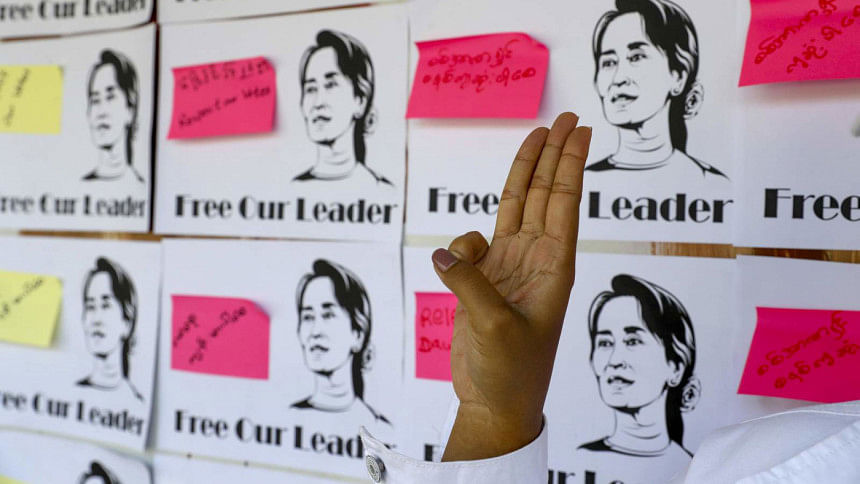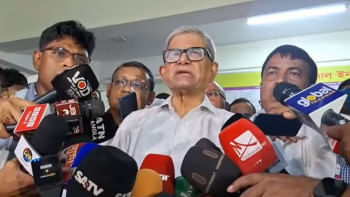Ethnic minorities’ baffling show of support for Suu Kyi: What does it indicate?

After Aung San Suu Kyi's arrest following the military coup, there was an outpouring of support shown to her by various ethnic groups in Myanmar, despite her outrageously disappointing disregard for their rights. They have taken to the streets in large numbers, alongside the Bamars, reported AP, demanding a return to her civilian government. Why?
Suu Kyi rose to international stardom during her years of struggle for democracy. Those who hoped for an end to the long streak of military rule and consequent marginalisation of ethnic minorities in Myanmar applauded when her party, the National League for Democracy (NLD), won a landslide victory in 2015. However, once she took over as the State Counsellor, her admirers were at a loss to explain her actions, which were in sharp contradiction to their expectations. Some of her activities were beyond their worst nightmares, such as her defence of Myanmar's military forces (Tatmadaw) at the International Court of Justice, as it faced charges of atrocities against the Rohingyas.
Questions arose as to what she fought for all these years. Was it "democracy"? Or was it just a way of securing a share of the power, hugging international media limelight, and enjoying the goddess-like reverence from the Bamar majority, 70 percent of the population, and her support base? Meanwhile, the ruthless exploitation of the 130 or so ethnic minority groups by the all-powerful Tatmadaw and the political elites after the British rulers' departure in 1948 continued unabated.
Ever since Myanmar's independence, the ethnic majority Bamars enjoyed a privileged position in the country. Successive amendments to the constitution slowly but steadily downgraded the status of non-Bamars. In the process, more than a million Rohingyas in Rakhine State lost their citizenship and were subject to multiple Tatmadaw operations at various times, the latest one being in 2017 carried out with genocidal intent.
Suu Kyi's lack of interest in resolving the issues underlying the ethnic conflicts during NLD's first term in office was evident as she ran a charade of "peace conference", reported Open Democracy, an independent global media organisation. Instead of inviting opinions on the long-felt demand for federalism, she spent a lot of time on trivial issues such as whether it would be a "democratic federalism" or "federal democracy", and ignored essential matters such as land rights. Meanwhile, she also lent unconditional support to the Tatmadaw's massive war-like operations in Rakhine, dismissing the reports of mass killings, arson and rape as fake news.
The November 2020 election saw Suu Kyi's party return to power with an even greater majority. But the military was unwilling to accept it and staged a coup, toppling her government. Evidently, the generals had different expectations from her.
Just then, to everyone's surprise, the ethnic minority groups have thrown their support behind Suu Kyi and NLD. What does it indicate for Myanmar?
First, it points to such groups' deep mistrust of the military and accepting the Bamars as an ally against a common enemy. But there are other aspects to it, as various political groups' reluctance to fall in line with Tatmadaw's plans illustrates. After the recent coup, the Tatmadaw formed a State Administrative Council (SAC) to run the country and invited the ethnic minority leaders to join it, presumably expecting to benefit from their dissatisfaction with Suu Kyi. But most invitees turned down such offers, and those who accepted them faced severe criticism. In Kayah State, the Kayah State Democratic Party (KySDP) joined its rival NLD and condemned the coup. It was also quick to fire its vice-president, who accepted the offer to join the SAC. However, the Mon Unity Party (MUP) of the Kayin State decided to join after a stormy debate among its leaders, triggering fierce criticism, reported Al Jazeera.
In Rakhine, the Arakan National Party, which decisively defeated the NLD in the 2015 elections, and was, until recently, fighting a bitter war with the Tatmadaw, decided to join the SAC. However, many Arakanese civil society organisations criticised this decision.
The Al Jazeera report also pointed to the loud demands by non-Bamar groups for an overhaul of the 2008 constitution based on federalism and their rights to land and natural resources. That leads us to the second aspect: a strong cry for establishing the minorities' rights, as seen in the recent street demonstrations, reported Nikkei Asia.
Many in Myanmar believe that the 2008 constitution needs redrafting to remove the root cause of discrimination of the minorities. Suu Kyi's 2015 election manifesto included constitutional reform. However, it took full three years for NLD to form a committee on a constitutional amendment in January 2019. To no one's surprise, the parliament rejected it as it failed to achieve the required 75 percent of votes (25 percent Tatmadaw and 11 percent USDP voted against). Her actions were a delicate balancing act, one which involved betrayal towards her supporters and a dangerous game with the Tatmadaw despite its long history of loathing civilian oversight, let alone any form of democracy.
That brings us to the third aspect: you cannot appease the generals while fighting for civilian rule. Throughout civilisations, civil-military relations were never easy, as elaborated by Duke professor Peter Feaver. Myanmar is a typical case where the very institution created to protect the polity became a threat. The military's task is to protect the regime from internal and external threats, but it also vehemently protects its own commercial and other interests, as BBC reported.
What impact are the recent events likely to have on the Rohingya population, both in Rakhine and the Bangladesh refugee camps? If history is any guide, their future is bleaker than ever, considering how the successive military-backed regimes made them a stateless pariah.
Recently, the Tatmadaw killed 114 demonstrators in a single day and opened fire at their funerals. The ongoing events should be a lesson for the country's future leaders—that one cannot tango with the Tatmadaw.
Sayeed Ahmed, PhD, is a consulting engineer with experience in infrastructure project management in South Asia.

 For all latest news, follow The Daily Star's Google News channel.
For all latest news, follow The Daily Star's Google News channel. 



Comments